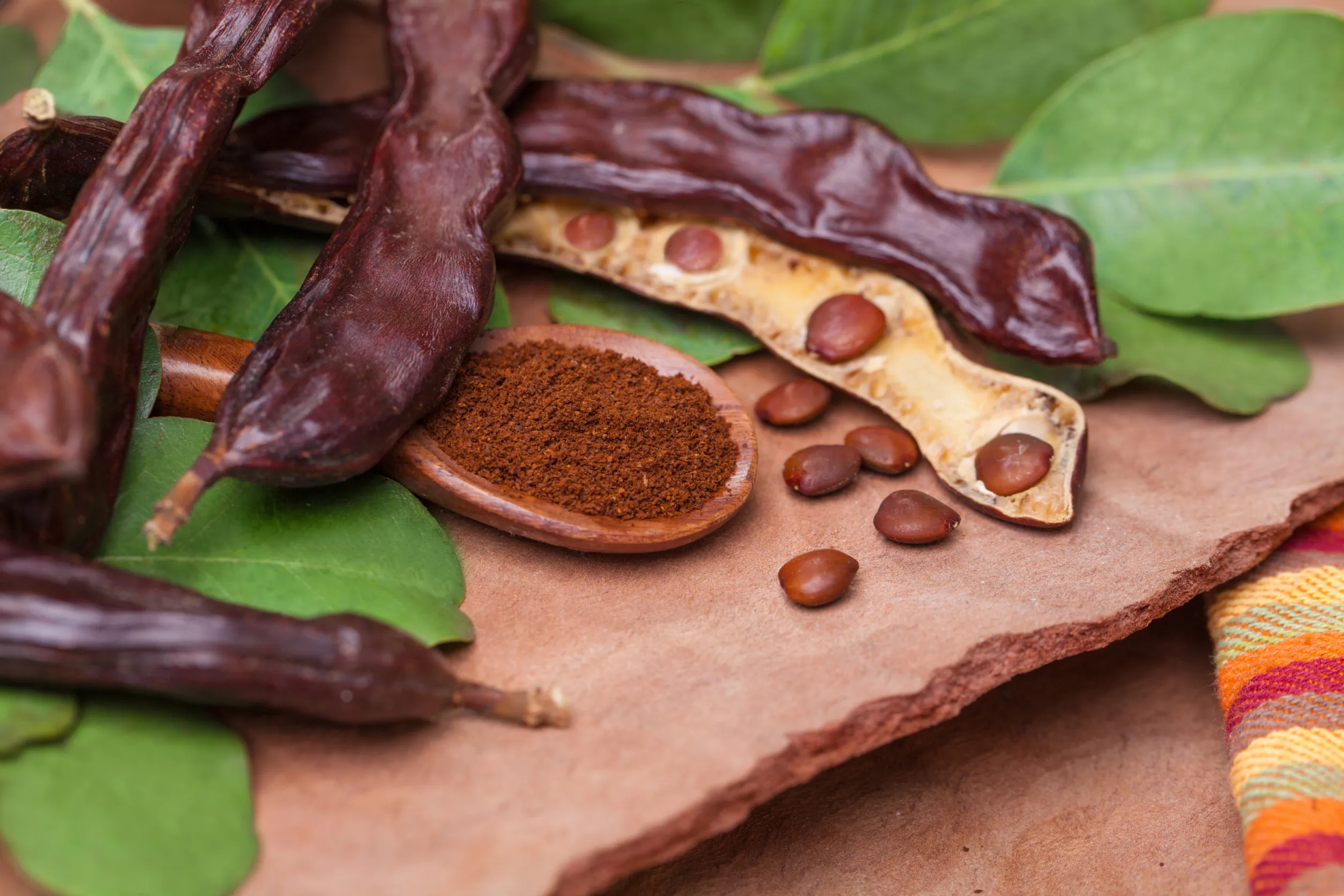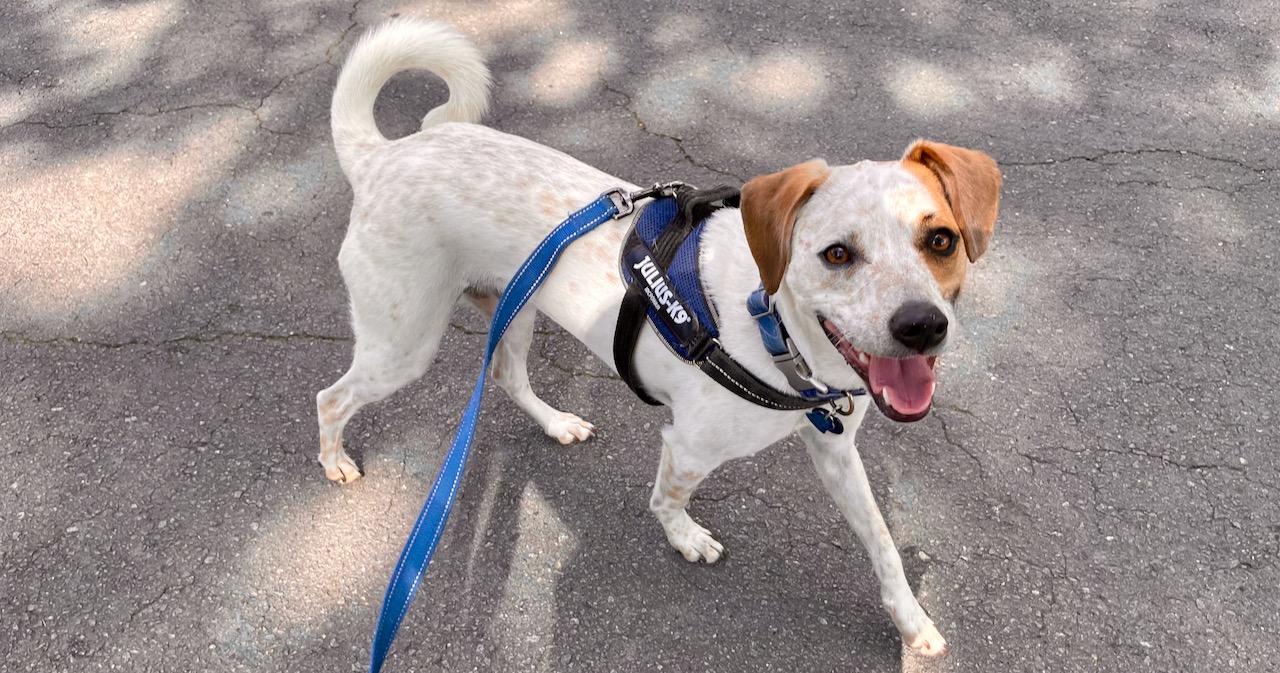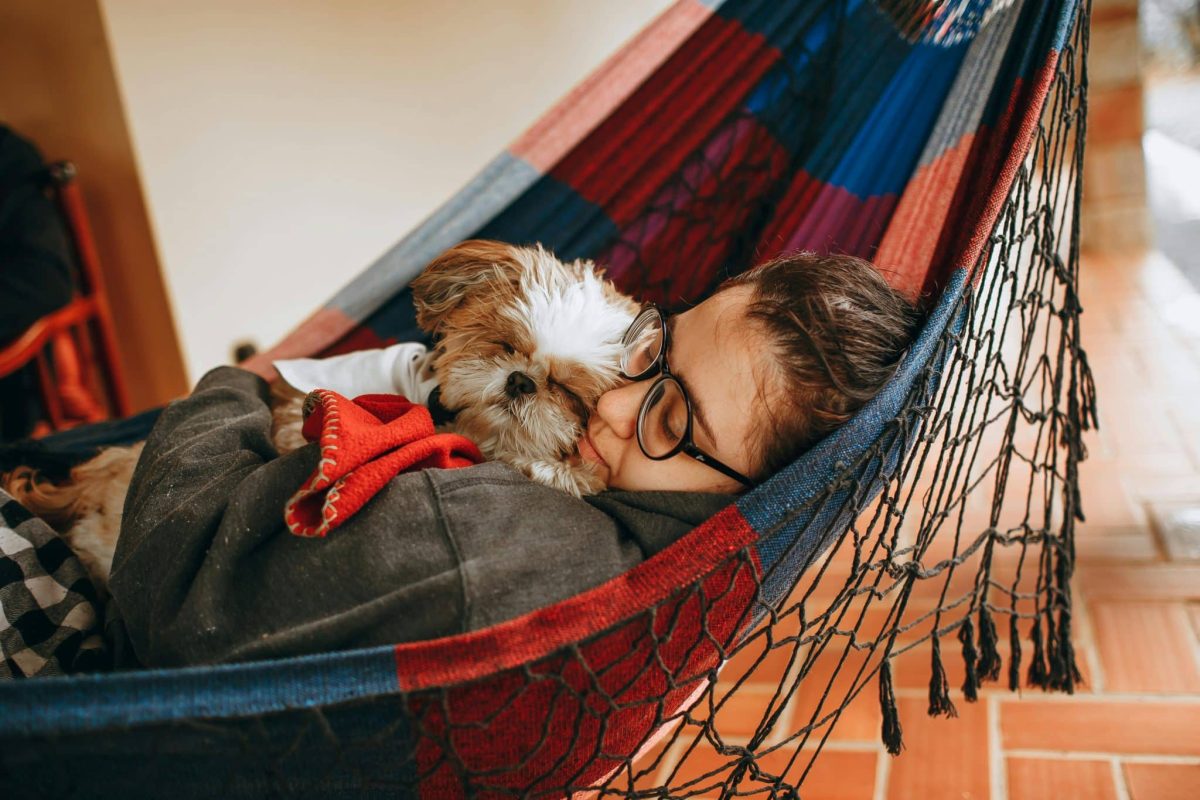Can dogs eat carob? If so, is it actually a good treat for them?
That’s what we’re exploring today! So grab a seat and let’s dive in!
Everything You Need to Know About Dogs & Carob
Do you love feeding your dog dessert? Who doesn’t? After all, your dog is more than an animal, they’re family!
As a devoted pet parent, you understand that dogs are highly-motivated by food; and so, maybe you’re on a quest to find the one treat that will get Fido to finally sit, stop barking, or respond to recall correctly.
Whatever your own motivation is, it’s clear: food bonds dogs to their owners.
Dog treats have always been a hit or miss for me. Peanut butter never motivated my dog to sit still in a bath, and the meat-centric variety didn’t hit it out of the ballpark every time either.
Regardless, when it comes to treating our furry friends, it’s essential to choose snacks that are not only delicious but also safe for them.
And as dog owners, we’ve all heard this before, “Never feed a dog chocolate!”
After that advice became popular, households everywhere stopped letting their helpful pooches “pre-clean” their dessert plates.
It’s true. Chocolate is toxic to dogs. Its ingestion can cause serious illness because of a chemical called theobromine that’s in cahoots with caffeine.
Since dogs can’t metabolize stimulants like caffeine and theobromine as well as humans, dogs get a little more “zing” to the heart than necessary.
To add insult to injury, chocolate poisoning can take hours to develop and last for days due to the long half-life of theobromine…meaning its chemical effects will be taking a longer siesta in your dog’s bloodstream.
Enter carob.
What is carob…exactly?
Carob is a Mediterranean flowering evergreen tree with fruit that comes in a dark brown pea pod containing pulp and seeds.
It produces carob pods, which contain both sweet pulp and inedible seeds.
The pulp is ground to make carob powder with the same earthy taste as chocolate but without the bitterness.
Carob is also virtually fat-free…I might end up persuading you to try carob for yourself once you’re done reading!
If you’re on a low-fat diet, carob powder is a great option. Just keep in mind that it’s higher in sugar and carbs than cocoa powder (aka chocolate).

Can dogs eat carob safely?
So, you might be wondering, “can dogs munch on carob?”
Well, here’s the scoop – they totally can!
Carob is chocolate’s cool cousin and a sweeter, healthier alternative to feeding your dog actual chocolate.
Since both carob and chocolate are similar in appearance and taste, they are often confused with each other. I’ve incorrectly viewed “carob” as being a derivative of chocolate (and so avoided it entirely) before properly educating myself.
But thankfully, Carob contains no stimulants that impact the nervous or cardiovascular systems. Zero. Zilch.
What are the benefits and risks of carob for dogs?
Carob is not only safe but also a source of essential nutrients for dogs. It contains fiber, vitamins (such as vitamin A, B vitamins), and minerals (like calcium and magnesium).
Some dog owners even believe that carob might have potential health benefits, such as aiding digestion and providing antioxidants, although more research is needed to confirm these claims.
Even though carob is a canine-approved snack, you should still feed it in moderation like any other snack.
Too much of a good thing can sometimes upset tummies. Luckily, carob doesn’t have any harmful stuff that can make your pets feel sick.
We can also give some extra points to carob for not being bitter like chocolate but naturally sweet, making it a palatable choice for your pooch.
But please note! Because of its fiber content, too much carob can lead to digestive issues.
It’s also essential to choose carob products that are free from additives like xylitol, which can be toxic to dogs!
Carob products come in many forms like bars, chips, and powders that might be mixed with other “healthy” ingredients for humans but harmful for dogs, like xylitol.
Always read the ingredient labels and choose products specifically designed for dogs.
What are some ways you can use carob safely in your dog’s diet?
- Start with a little carob taste test to make sure your buddy loves it.
- Get carob treats that are tailor-made for dogs. Skip the added sugars!
- Sprinkle a smidge of carob powder on your pup’s regular food so they can explore the taste.
- Whip up your own carob dog treats if you’re feeling fancy!
If you dig the last suggestion, here’s a 3-ingredient carob treat recipe that you can try at home:
No Bake Peanut Butter & Carob Treats Recipe

Ingredients:
We recommend:
10/06/2023 08:28 am GMT
Directions:
- Melt the peanut butter and coconut oil together.
- Stir in the carob powder until it’s all smooth and creamy.
- Pour the mix into molds using a spoon or shape by hand.
- Pop them in the fridge for one hour until they’re nice and solid.
- Share these homemade goodies with your pup, but keep them chilled.
- Store in freezer in an airtight container or bag.
Carob is good, but is carob a good idea for your dog and household?
Let’s play the doggie’s advocate.
In comparison to chocolate, carob is expensive largely due to supply and demand.
Carob trees take years to become productive and establishing new farms has proven to be a logistical nightmare. As a result, there is no carryover of carob feedstock from year to year.
For me, carob is a little too similar to chocolate.
The similarities could lead to accidental confusion when you or another caregiver is feeding the dog…particularly if you keep loose carob and cocoa powder in unmarked jars on the counter for hot cocoa and such.
We can eliminate that risk altogether with alternative and plentiful treats your pooch can enjoy like peanut butter, pumpkin, and let’s not forget…puppuccinos!
Here’s the bottom line with carob
Carob is like a high-five for your dog’s taste buds. With its natural sweetness and potential health benefits, it’s a wonderful addition to your dog’s diet.
Just remember, a little carob goes a long way.
As always, if you’re considering introducing carob into your dog’s diet, it’s a good idea to consult your veterinarian first, especially if your dog has any existing health conditions or dietary restrictions.


